Грег Иган - Permutation City
Здесь есть возможность читать онлайн «Грег Иган - Permutation City» весь текст электронной книги совершенно бесплатно (целиком полную версию без сокращений). В некоторых случаях можно слушать аудио, скачать через торрент в формате fb2 и присутствует краткое содержание. Жанр: Фантастика и фэнтези, Киберпанк, на английском языке. Описание произведения, (предисловие) а так же отзывы посетителей доступны на портале библиотеки ЛибКат.
- Название:Permutation City
- Автор:
- Жанр:
- Год:неизвестен
- ISBN:нет данных
- Рейтинг книги:4 / 5. Голосов: 1
-
Избранное:Добавить в избранное
- Отзывы:
-
Ваша оценка:
- 80
- 1
- 2
- 3
- 4
- 5
Permutation City: краткое содержание, описание и аннотация
Предлагаем к чтению аннотацию, описание, краткое содержание или предисловие (зависит от того, что написал сам автор книги «Permutation City»). Если вы не нашли необходимую информацию о книге — напишите в комментариях, мы постараемся отыскать её.
Permutation City — читать онлайн бесплатно полную книгу (весь текст) целиком
Ниже представлен текст книги, разбитый по страницам. Система сохранения места последней прочитанной страницы, позволяет с удобством читать онлайн бесплатно книгу «Permutation City», без необходимости каждый раз заново искать на чём Вы остановились. Поставьте закладку, и сможете в любой момент перейти на страницу, на которой закончили чтение.
Интервал:
Закладка:
She summoned up old and new versions of the enzyme, highlighted the regions where the tertiary structure was different, and probed them with her fingertips -- confirming, palpably, that the cavity in the giant molecule where the reaction took place had changed shape.
And once the ring was cleaved? The fragments were the same, whether the original sugar had been nutrose or mutose. The rest of the Lambert pathway went on as if nothing had changed.
Maria was elated, and a little dazed. People had been trying to achieve a spontaneous adaptation like this for sixteen years. She didn't even know why she'd finally succeeded; for five years she'd been tinkering with the bacterium's error correction mechanisms, trying to force A. lamberti to mutate, not more rapidly, but more randomly. Every time, she'd ended up with a strain which -- like Lambert's original, like those of other workers -- suffered the same handful of predictable, useless mutations again and again . . . almost as if something deep in the clockwork of the Autoverse itself ruled out the exuberant diversity which came so effortlessly to real-world biology. Calvin and others had suggested that, because Autoverse physics omitted the deep indeterminacy of real-world quantum mechanics -- because it lacked this vital inflow of "true unpredictability" -- the same richness of phenomena could never be expected, at any level.
But that had always been absurd -- and now she'd proved it was absurd.
For a moment she thought of phoning Aden, or Francesca -- but Aden wouldn't understand enough to do more than nod politely, and her mother didn't deserve to be woken at this hour.
She got up and paced the tiny bedroom for a while, too excited to remain still. She'd upload a letter to Autoverse Review (total subscription, seventy-three), with the genome of the strain she'd started out with appended as a footnote, so everyone else could try the experiment . . .
She sat down and began composing the letter -- popping up a word processor in the foreground of the workspace -- then decided that was premature; there was still a lot more to be done to form the basis of even a brief report.
She cloned a small colony of the mutose-eating strain, and watched it grow steadily in a culture of pure mutose. No surprise, but it was still worth doing.
Then she did the same, with pure nutrose, and the colony, of course, died out at once. The original ring-cleaving enzyme had been lost; the original roles of nutrose and mutose as food and poison had been swapped.
Maria pondered this. A. lamberti had adapted -- but not in the way she'd expected. Why hadn't it found a means of consuming both sugars, instead of exchanging one kind of exclusive reliance for another? It would have been a far better strategy. It was what a real-world bacterium would have done.
She brooded over the question for a while -- then started laughing. Sixteen years, people had been hunting for a single, convincing example of natural selection in the Autoverse -- and here she was worrying that it wasn't the best of all possible adaptations. Evolution was a random walk across a minefield, not a preordained trajectory, onward and upward toward "perfection." A. lamberti had stumbled on a successful way to turn poison into food. It was tough luck if the corollary was: vice versa.
Maria ran a dozen more experiments. She lost all track of time; when dawn came, the software brightened the images in front of her, keeping the daylight from washing them out. It was only when her concentration faltered, and she looked around the room, that she realized how late it was.
She started again on the letter. After three drafts of the first paragraph -- all eliciting the same response from Camel's Eye: You'll hate this when you reread it later. Trust me. -- she finally admitted to herself that she was wasted. She shut down everything and crawled into bed.
She lay there awhile in a stupor, burying her face in the pillow, waiting for the ghost images of Petri dishes and enzymes to fade. Five years ago, she could have worked all night, and suffered nothing worse than a fit of yawning in the middle of the afternoon. Now, she felt like she'd been hit by a train -- and she knew she'd be a wreck for days. Thirty-one is old, old, old.
Her head throbbed, her whole body ached. She didn't care. All the time and money she'd squandered on the Autoverse was worth it, now. Every moment she'd spent there had been vindicated.
Yeah? She rolled onto her back and opened her eyes. What, exactly, had changed? It was still nothing but a self-indulgent hobby, an elaborate computer game. She'd be famous with seventy-two other anal-retentive Autoverse freaks. How many bills would that pay? How many typhoons would it neutralize?
She wrapped her head in the pillow, feeling crippled, stupid, hopeless -- and defiantly happy -- until her limbs went numb, her mouth went dry, and the room seemed to rock her to sleep.
5
(Remit not paucity)
NOVEMBER 2050
Peer anchored the soles of both feet and the palm of one hand firmly against the glass, and rested for a while. He tipped his head back to take in, one more time, the silver wall of the skyscraper stretching to infinity above him. Cotton-wool clouds drifted by, higher than any part of the building -- even though the building went on forever.
He freed his right foot, reanchored it higher up the wall, then turned and looked down at the neat grid of the city below, surrounded by suburbs as orderly as ploughed fields. The foreshortened countryside beyond formed a green-brown rim to the hemispherical bowl of the Earth; a blue-hazed horizon bisected the view precisely. The features of the landscape, like the clouds, were "infinitely large," and "infinitely distant"; a finite city, however grand, would have shrunk to invisibility, like the base of the skyscraper. The distance was more than a trick of perspective, though; Peer knew he could keep on approaching the ground for as long as he liked, without ever reaching it. Hours, days, centuries.
He couldn't remember beginning the descent, although he understood clearly -- cloud-knowledge, cloud-memories -- the sense in which there was a beginning, and the sense in which there was none. His memories of the skyscraper, like his view of it, seemed to converge toward a vanishing point; looking back from the present moment, all he could recall was the act of descending, punctuated by rest. And although his mind had wandered, he'd never lost consciousness; his past seemed to stretch back seamlessly, forever -- yet he could hold it all in his finite gaze, thanks to some law of mental perspective, some calculus of memory limiting the sum of ever diminishing contributions to his state of mind from ever more distant moments in the past. But he had his cloud-memories, too; memories from before the descent. He couldn't join them to the present, but they existed nonetheless, a backdrop informing everything else. He knew exactly who he'd been, and what he'd done, in that time before the time he now inhabited.
Peer had been exhausted when he'd stopped, but after a minute's rest he felt, literally, as energetic and enthusiastic as ever. Back in cloud-time, preparing himself, he'd edited out any need or desire for food, drink, sleep, sex, companionship, or even a change of scenery, and he'd preprogrammed his exoself -- the sophisticated, but nonconscious, supervisory software which could reach into the model of his brain and body and fine-tune any part of it as required -- to ensure that these conditions remained true. He resumed the descent gladly, a happy Sisyphus. Making his way down the smooth mirrored face of the skyscraper was, still, the purest joy he could imagine: the warmth of the sun reflecting back on him, the sharp cool gusts of wind, the faint creak of steel and concrete. Adrenaline and tranquility. The cycle of exertion and perfect recovery. Perpetual motion. Touching infinity.
Читать дальшеИнтервал:
Закладка:
Похожие книги на «Permutation City»
Представляем Вашему вниманию похожие книги на «Permutation City» списком для выбора. Мы отобрали схожую по названию и смыслу литературу в надежде предоставить читателям больше вариантов отыскать новые, интересные, ещё непрочитанные произведения.
Обсуждение, отзывы о книге «Permutation City» и просто собственные мнения читателей. Оставьте ваши комментарии, напишите, что Вы думаете о произведении, его смысле или главных героях. Укажите что конкретно понравилось, а что нет, и почему Вы так считаете.

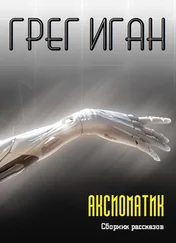
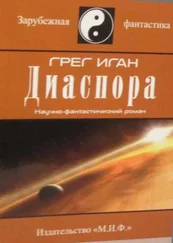
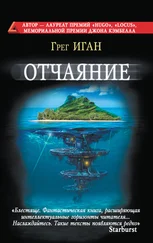
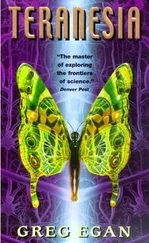
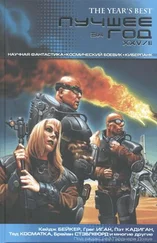

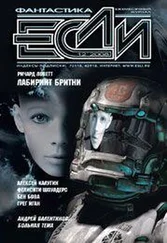
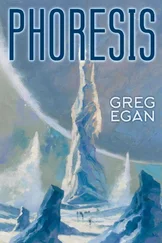
![Грег Иган - Рассказы [компиляция]](/books/419837/greg-igan-rasskazy-kompilyaciya-thumb.webp)
